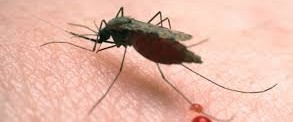The United Nations recently discussed the achievements so far in achieving the Millennium Development Goals. The goals aim to:
- Eradicate extreme poverty and hunger
- Achieve universal primary education
- Promote gender equality and empower women
- Reduce child mortality
- Improve maternal health
- Combat HIV/Aids, malaria and other diseases
- Ensure environmental sustainability
- Develop a Global Partnership for Development
The Prime Minister of Norway, Jens Stoltenberg and the Gordon Brown, former PM of Great Britain, underline that governments of poorer nations have to put resources into education and health, and not into corruption.
As I have outlined previously, corruption is widespread at health institutions. Fighting corruption is necessary because corruption reduces the resources available for health. Corruption also lowers the quality, equity and effectiveness of health care services, and it decreases the volume and increases the cost of provided services. Corruption also discourages people to use and pay for health services.
It is encouraging that world leaders talk about broadening the tax base, and identify fighting corruption as a means of achieving the MDGs. The leading donors should encourage governments to put in place mechanisms at each institution to reduce corruption. This should include such basic functions and proper accounting systems and mechanisms for independent financial audits.
